In confronting the COVID-19 pandemic, Indonesia has faced many of the same challenges as have other large and diverse democracies. Those countries’ relatively disappointing performance raises serious questions about democratic responsiveness in the context of major threats to health and social stability. This piece was originally published by CFR’s Think Global Health.
Indonesia is an important bellwether for the state of democracy in the era of COVID-19. In confronting the pandemic, it has faced many of the same challenges as have other large and diverse democracies like India, Brazil, and the United States — and the relatively disappointing performance of each raises serious questions about democratic responsiveness in the context of major threats to human health and social stability.
Indonesia is world’s fourth-most populous country, and a Muslim-majority democracy with hundreds of ethnic groups and substantial numbers of religious minorities. Alongside its size and diversity, Indonesia has much in common with other populous democracies like Brazil, India, and the United States. Specifically, Indonesian president Joko Widodo (Jokowi) — like Jair Bolsonaro in Brazil, Narendra Modi in India, and Donald Trump in the United States — embodies a populist form of politics.
There are, of course, important differences in these countries’ populist politics. Jokowi’s populism has been described as technocratic in orientation, in stark contrast with the aggressive and exclusionary and highly charismatic populisms of the others. Jokowi displays none of their bravado; his style and demeanor are more modest in orientation, in keeping with his popular image as a local politician of relatively humble origins who has risen to power on his ability to get things done. His populist style evokes this outsider status, bringing competence and a focus on the practical problems that affect millions of ordinary Indonesians. His record in office has been a qualified success in this regard.
Yet when confronted with the COVID-19 pandemic, the Jokowi administration demonstrated none of the effective leadership and results-oriented decision-making needed to contain the crisis. His administration’s performance raises concerns about the capacity of democratic governments in large, diverse societies with populist leaders to respond to crisis. Ten months into the COVID-19 crisis, we can now take stock of how Indonesians are reacting to their government’s lackluster performance.
According to Johns Hopkins University’s COVID-19 dashboard, the pandemic has hit Indonesia worse than any other Southeast Asian country. Indonesia’s incidence rate is 223 per 100,000 citizens, one of the highest in the region. And Indonesia’s case fatality ratio exceeds 3%, the worst in the region. According to the highly respected polling firm Indikator, Indonesians’ views of the state of the economy declined sharply between February and September 2020, with 65% of Indonesians in May reporting that their personal financial situation had worsened relative to the previous year, compared to only 21% reporting a year-on-year worsening of their personal financial situation in February.
Yet perhaps surprisingly, and despite the very clear effects that COVID-19 has had on everyday life, Indonesians remain largely satisfied with the Jokowi administration’s performance in office. Majorities reported being satisfied with the government’s response to COVID-19, and also with continued high levels of trust in the army, the president, the police, and the parliament (see Figure 1). These declined slightly relative to their pre-COVID-19 levels but remain quite high.
Figure 1:

Yet viewed over a longer time scale, public opinion data gives some cause for concern. Compare, for example, trends in satisfaction with Jokowi’s performance as president with the level of satisfaction with Indonesian democracy (see Figure 2).
Figure 2:
 Satisfaction with Jokowi remains consistently high with only a modest downturn associated with COVID-19, but the acute shock of COVID-19 led to a sharp decline in Indonesians’ satisfaction with democracy. This is worrying for the long-term state of democracy in Indonesia: it suggests that the very stability of Indonesian democracy depends on the current government’s performance. In a consolidated democracy, poor performance ought to lead to opposition to the government rather than to the type of political system itself. But in contemporary Indonesia, we see exactly the opposite, raising doubts about just how deeply Indonesians hold their democratic values. That an acute public health shock could lead to such a divergence between evaluations of leading political actors and of democracy itself, moreover, suggests that there is space for illiberal political actors — within the Jokowi administration and without — to challenge the civil rights and political liberties that are the foundation of Indonesian democracy in the longer-term.
Satisfaction with Jokowi remains consistently high with only a modest downturn associated with COVID-19, but the acute shock of COVID-19 led to a sharp decline in Indonesians’ satisfaction with democracy. This is worrying for the long-term state of democracy in Indonesia: it suggests that the very stability of Indonesian democracy depends on the current government’s performance. In a consolidated democracy, poor performance ought to lead to opposition to the government rather than to the type of political system itself. But in contemporary Indonesia, we see exactly the opposite, raising doubts about just how deeply Indonesians hold their democratic values. That an acute public health shock could lead to such a divergence between evaluations of leading political actors and of democracy itself, moreover, suggests that there is space for illiberal political actors — within the Jokowi administration and without — to challenge the civil rights and political liberties that are the foundation of Indonesian democracy in the longer-term.
Jokowi is no Bolsonaro, and has not proven willing to adopt the brash, confrontational, and “order above the law” approach of a politician like the Philippines’ Rodrigo Duterte. Yet in recent years, careful analysts of Indonesian politics under Jokowi have detected a range of illiberal currents within his administration, from using the state’s coercive and legal apparatuses to constrain criticism from Jokowi’s opponents to a narrow focus on infrastructural development at the expense of further democratic consolidation. The Jokowi administration’s efforts to rein in criticism are pitched as measures to defend Indonesian pluralism against dangerous rumors, fake news, and the rhetoric of hardline Islamists. Yet in restricting the space for debate in the public sphere, the efforts themselves threaten the freedom of speech and conscience that undergirds democracy. Indonesia expert Greg Fealy has termed such Jokowi-era practices “repressive pluralism.”
COVID-19 has strengthened these illiberal currents, bolstering Jokowi’s incentives to clamp down on criticism in the name of protecting Indonesia’s democratic pluralism and further concentrating his attention on ensuring political stability as a foundation for economic recovery and, in the long term, infrastructural transformation. Jokowi has relied on the military as a partner in the country’s strategy to combat the pandemic, which evokes memories of the country’s long experience of authoritarian rule under longtime dictator Suharto, who rose to power from the ranks of the military and under whom the security forces had an explicit “sociopolitical function.”
This is all the more troubling given Jokowi’s close relations with the Indonesian military during his presidency. He has allowed the state intelligence services to have an active role in areas far outside their traditional scope of authority in the post-Suharto democratic era, and he has tasked the Indonesian army with a range of non-security responsibilities. In light of Indonesia’s history of close military involvement in politics, giving the military greater responsibilities in non-security domains is worrisome.
Jokowi is term-limited and once he leaves office in 2024, his successor might be even more inclined to use the security forces against democratic opponents. Of particular causes concern among Indonesia’s liberals is Prabowo Subianto, a former general with a stained human rights record who has faced Jokowi in the last two presidential elections. Prabowo is generally seen as a populist authoritarian in the Bolsonaro or Duterte style, and he now serves as Jokowi’s defense minister, a platform that ensures he will remain in the political spotlight until 2024.
Yet it is in the tension between Indonesia’s Islamists and pluralists where the greater long-term danger to the country’s democracy lies. Jokowi has adopted a strong position against hardline Islamism in the defense of Indonesian pluralism, but in doing so he threatens Indonesian civil liberties, and risks provoking an Islamist backlash against the country’s pluralists. When COVID-19 hit, moderate Islamist voices were among those who reacted to Jokowi’s inaction. Most famously, this included Jakarta Governor and likely presidential contender Anies Baswedan, who sought a lockdown in Jakarta even as Jokowi hesitated to implement one. This kind of politicization of public health responses may afford the country’s Islamists yet another source of ammunition against the Jokowi administration.
The long-term implications of COVID-19 for Indonesian democracy are worrying. Although trust in political institutions remains high and Jokowi remains popular, the administration’s lackluster response, amidst what were already signs of democratic decline, may undermine the quality of Indonesian democracy still further.
The Brookings Institution is committed to quality, independence, and impact.
We are supported by a diverse array of funders. In line with our values and policies, each Brookings publication represents the sole views of its author(s).

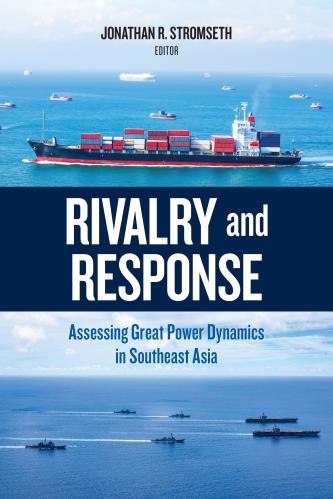

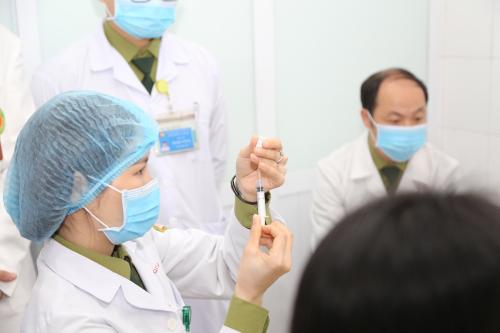
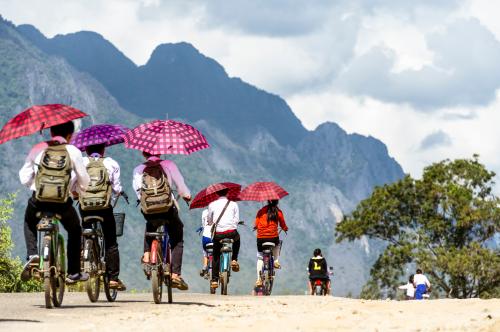

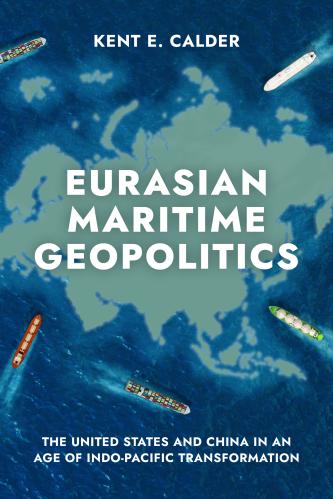
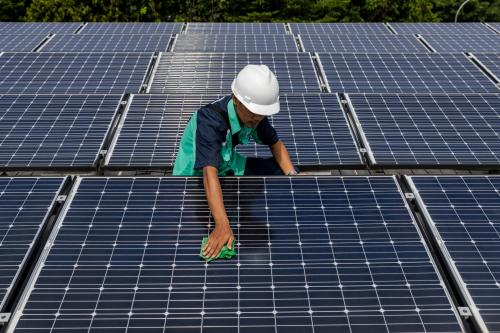
Commentary
COVID-19 and democracy in Indonesia: Short-term stability and long-term threats
January 26, 2021